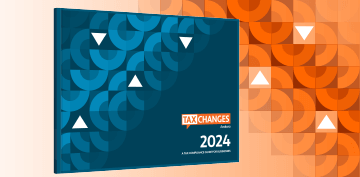The CRUSH Files: Sales and Use Tax in the Cloud
What does the cloud have to do with sales and use tax? Plenty! Just ask Carolynn Kranz, managing member of Industry Sales Tax Solutions and Kranz & Associates, PLLC in Washington, D.C., and one of this year’s conference speakers at CRUSH AUSTIN 2017, Avalara’s national tax compliance conference May 2–3 in Austin, Texas. Carolynn told us more about her topic, what CRUSH attendees will learn, and what she is most looking forward to at this year’s conference.
Accounting professionals and business owners are attending CRUSH 2017; why would they need to know more about navigating the cloud to better serve their customers or get their job done?
If a company is not selling cloud-related products and services, they are certainly purchasing them. So, as a result, this is an issue for accountants and businesses — and really all taxpayers — due to major tax implications that vary by state.
The title for your session at CRUSH AUSTIN is “Navigating the Cloud: A Sales & Use Tax Guide.” Tell us what you’re covering in this session.
We’ll talk about the taxability of cloud-computing services, including Software as a Service, Platform as a Service, and Infrastructure as a Service, better known by the acronyms SaaS, PaaS, and IaaS. Attendees will understand five tools to better position their company in the event of an audit or when planning for future cloud purchases, and we’ll dive into other issues, including characterization, sourcing, the impact of contractual language, and more.
What are some of the key concepts you hope attendees take home?
I hope attendees will understand:
- The basic cloud models
- The states’ varying approaches to taxing these models
- Issues that are particular to sellers and purchasers — and issues that can be unique to one another as well
- Possible remedies for addressing these issues
Why do you feel businesses ignore, or are unaware of, the cloud and the taxability of cloud purchases, and what potential ramifications do the businesses face?
It may be that the business is located in a state that does not tax cloud-related transactions, or that the business is not paying close attention to its high tech spend. However, remember that all companies are using the cloud, whether for remotely accessed software, web hosting, data storage, or disaster recovery.
What is one of the points from your session you think is the most impactful?
Sellers have often configured their sales tax system to charge only one state’s tax on a particular transaction, which results in sellers making a taxability determination that often results in one state’s tax being charged on 100 percent of a transaction. Yet, in the case of cloud services, sales tax generally follows the user’s location and is apportioned to multiple states. Therefore, tax is often incorrectly charged by the seller to the purchaser.
How do you feel technology helps speed sales tax compliance and reporting?
When configured properly, technology assures proper tax compliance on a real-time basis, with streamlined reporting and better audit processes.
What are you looking forward to most at CRUSH AUSTIN?
Networking with friends and colleagues.
Join Carolynn for her session, “Navigating the Cloud: A Sales & Use Tax Guide,” on May 2. For more information on CRUSH AUSTIN 2017, visit our website that includes all conference sessions, speaker bios, location information, after-hours activities, and more!

Avalara Tax Changes 2024: Get your copy now
Stay ahead of 2024’s biggest tax changes with this comprehensive, compelling report covering seven industries.
Stay up to date
Sign up for our free newsletter and stay up to date with the latest tax news.











